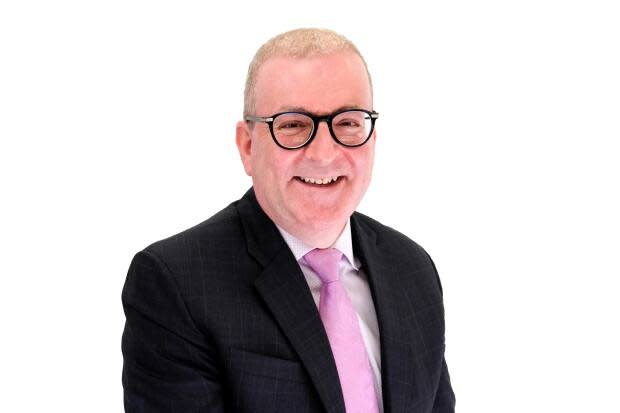B.C. advocate calls on province to prioritize people with Down syndrome for COVID-19 vaccine
The provincial government has begun vaccinating British Columbia's most vulnerable against COVID-19 and an advocacy group for people with Down syndrome is hoping the group it represents will be added to this priority queue.
Wayne Leslie, CEO of the Burnaby-based Down Syndrome Resource Foundation (DSRF), laid out his reasons why in a letter addressed to Provincial Health Officer Bonnie Henry earlier this week.
Down syndrome is a genetic condition that can result in physical, mental, and developmental disabilities and, as a result, people with the condition can have complex health and mental health needs.
In his letter to Henry, Leslie says people over the age of 40 with Down syndrome can develop high-risk medical conditions that are comparable to someone over the age of 70 in the general population.
Leslie's complete letter to the province on behalf of the DSRF can be found here.
According to the foundation, the average life span of a person with Down syndrome is approximately 60 years. The average life expectancy for British Columbians, according to 2017 Statistics Canada data, is 84 for women and 79.9 for men.
The province has taken a phased-in approach to its vaccination program, with the first available doses being doled out to front-line health-care workers, and staff and residents in long-term care facilities. After that, the plan is to primarily vaccinate people by age, beginning with the most elderly.
The priority vaccine groups can be found here.
Recommendations to province
Leslie's letter makes two recommendations — that adults with Down syndrome over the age of 40 be considered high priority for vaccination, and that individuals with Down syndrome between the ages of 16 and 39 also be given priority consideration.
His letter highlights that adults with Down syndrome are four times more likely to be hospitalized with COVID-19 and 10 times more likely to die from the virus.
Leslie's statistics are based on research published in the Annals of Internal Medicine in October that looked at a cohort of over eight million adults, of which just over 4,000 had Down syndrome. Twenty-seven of those with Down syndrome died of COVID-19.
"One of the key reasons is that someone in their forties typically has the health issues associated with aging of the typical population in its seventies," Leslie told Stephen Quinn, host of CBC's The Early Edition, on Thursday.
He said people with Down syndrome in the 16 to 39 category should be considered a priority because many individuals in that age group, due to the pandemic, are without critical programs and services such as mental health supports.

People with developmental disabilities, including Down syndrome, often also depend heavily on predictable routines to successfully navigate daily life — routines that have been completely upended by COVID-19.
"It's very hard for me and my friends," said 27-year-old Andrew Bingham, who has Down syndrome and is an ambassador for the foundation.
Bingham said while he tries to stay connected with friends by text message, COVID-19 has already cost him a job, sports, and his social life.
Provincial responses
Premier John Horgan, addressing reporters on a wide range of issues Thursday, said he has received "piles of mail" from individuals and groups asking to be prioritized for a vaccine.
"We want to start, I think the rule of thumb, is the older you are the more at risk you are," said Horgan.
In a Thursday statement to CBC, the Ministry of Health said vaccines are not available to everyone at once and because of the challenges in storing and shipping the doses, certain groups have been prioritized.
"As Dr. Henry has said, everybody is important in B.C. and everyone who the vaccine is recommended for will have access to it. But we know that some people are at higher risk, and that is why they are getting immunized first," said the statement.
Henry and Health Minister Adrian Dix will provide an update next week about when the general population in B.C. will be able to receive the vaccine.
Leslie is optimistic the province will respond to his letter and consider his request.
Using general population figures, the foundation estimates the Down syndrome population in B.C. to be somewhere between 3,500 and 4,000 people and about 2,000 of that group to be over age 16.
Tap here to listen to Wayne Leslie and Andrew Bingham interviewed on CBC's The Early Edition.

 Yahoo Movies
Yahoo Movies 